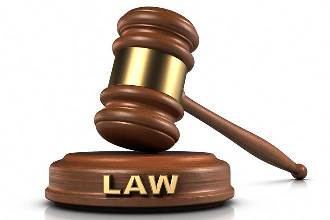

Brother-in-Law Can Be Ordered To Pay Maintenance
The Supreme Court has ruled that a respondent under the Domestic Violence Act can also mean the brother-in-law of the aggrieved person and he can be ordered to pay maintenance to the widow under the said act. In the case Ajay Kumar vs Latha@Sharuti, a division bench of Justice DY Chandrachud and Justice Hemant Gupta ruled that if a widow is ejected from her matrimonial house which was joint ancestral property, the brother-in-law was liable to pay her maintenance. In the instant case, the deceased used to run a kirana store jointly with his brother and they used to stay in the same ancestral house. Upon the death of the deceased, the brother did not allow the widow and her child to stay in the house.By Sunil Garodia
First publised on 2019-05-28 15:42:42
The trial court ruled that the brother-in-law was liable to pay Rs. 4000 per month to the widow and Rs, 2000 per month for the child. The High Court had confirmed the order. Aggrieved by this, the brother-in-law approached the Supreme Court on the plea that there were no provisions in the act to make him liable for paying maintenance. The Supreme Court observed that "The proviso indicates that both, an aggrieved wife or a female living in a relationship in the nature of marriage may also file a complaint against a relative of the husband or the male partner, as the case may be. It further clarified that Section 2(f) defines the expression 'domestic relationship' to mean a relationship where two persons live or have lived together at any point of time in a shared household when they are related by consanguinity, marriage or through a relationship in the nature of marriage, adoption or are members living together as a joint family . All these definitions indicate the width and amplitude of the intent of Parliament in creating both an obligation and a remedy in the terms of the enactment."
Observing that the case of the complainant was that she was living in a joint family and that this was true, the court ruled that "Ultimately, whether the requirements of Section 2(f); Section 2(q); and Section 2(s) are fulfilled is a matter of evidence which will be adjudicated upon at the trial. At this stage, for the purpose of an interim order for maintenance, there was material which justifies the issuance of a direction in regard to the payment of maintenance." The court upheld the High Court order.











